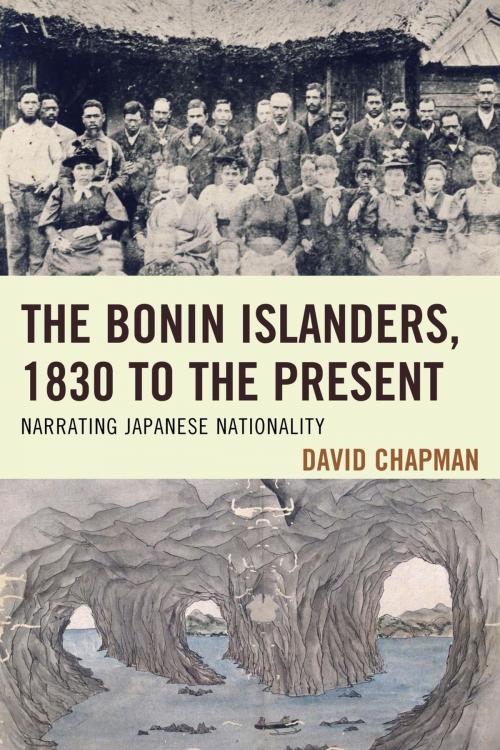The Bonin Islanders, 1830 to the Present
Narrating Japanese Nationality
Nonfiction, History, Asian, Asia, Japan| Author: | David Chapman | ISBN: | 9781498516648 |
| Publisher: | Lexington Books | Publication: | February 23, 2016 |
| Imprint: | Lexington Books | Language: | English |
| Author: | David Chapman |
| ISBN: | 9781498516648 |
| Publisher: | Lexington Books |
| Publication: | February 23, 2016 |
| Imprint: | Lexington Books |
| Language: | English |
This book is a collection of interwoven historical narratives that present an intriguing and little known account of the Ogasawara (Bonin) archipelago and its inhabitants. The narratives begin in the seventeenth century and weave their way through various events connected to the ambitions, hopes, and machinations of individuals, communities, and nations. At the center of these narratives are the Bonin Islanders, originally an eclectic mix of Pacific Islanders, Americans, British, French, German, Portuguese, Italian, and African settlers that first landed on the islands in 1830. The islands were British sovereign territory from 1827 to 1876, when the Japanese asserted possession of the islands based on a seventeenth century expedition and a myth of a samurai discoverer. As part of gaining sovereign control, the Japanese government made all island inhabitants register as Japanese subjects of the national family register. The islanders were not literate in Japanese and had little experience of Japanese culture and limited knowledge of Japanese society, but by 1881 all were forced or coerced into becoming Japanese subjects. By the 1930s the islands were embroiled in the Pacific War. All inhabitants were evacuated to the Japanese mainland until 1946 when only the descendants of the original settlers were allowed to return. In the postwar period the islands fell under U.S. Navy administration until they were reverted to full Japanese sovereignty in 1968. Many descendants of these original settlers still live on the islands with family names such as Washington, Gonzales, Gilley, Savory, and Webb. This book explores the social and cultural history of these islands and its inhabitants and provides a critical approach to understanding the many complex narratives that make up the Bonin story.
This book is a collection of interwoven historical narratives that present an intriguing and little known account of the Ogasawara (Bonin) archipelago and its inhabitants. The narratives begin in the seventeenth century and weave their way through various events connected to the ambitions, hopes, and machinations of individuals, communities, and nations. At the center of these narratives are the Bonin Islanders, originally an eclectic mix of Pacific Islanders, Americans, British, French, German, Portuguese, Italian, and African settlers that first landed on the islands in 1830. The islands were British sovereign territory from 1827 to 1876, when the Japanese asserted possession of the islands based on a seventeenth century expedition and a myth of a samurai discoverer. As part of gaining sovereign control, the Japanese government made all island inhabitants register as Japanese subjects of the national family register. The islanders were not literate in Japanese and had little experience of Japanese culture and limited knowledge of Japanese society, but by 1881 all were forced or coerced into becoming Japanese subjects. By the 1930s the islands were embroiled in the Pacific War. All inhabitants were evacuated to the Japanese mainland until 1946 when only the descendants of the original settlers were allowed to return. In the postwar period the islands fell under U.S. Navy administration until they were reverted to full Japanese sovereignty in 1968. Many descendants of these original settlers still live on the islands with family names such as Washington, Gonzales, Gilley, Savory, and Webb. This book explores the social and cultural history of these islands and its inhabitants and provides a critical approach to understanding the many complex narratives that make up the Bonin story.















